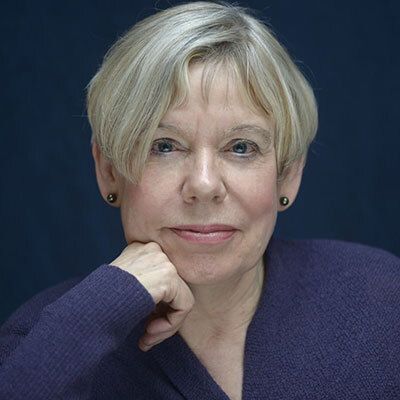Karen Armstrong

Karen Armstrong is the author of numerous other books on religious affairs-including A History of God, The Battle for God, Holy War, Islam, Buddha, and The Great Transformation-and two memoirs, Through the Narrow Gate and The Spiral Staircase. Her work has been translated into forty-five languages. She has addressed members of the U.S. Congress on three occasions; lectured to policy makers at the U.S. State Department; participated in the World Economic Forum in New York, Jordan, and Davos; addressed the Council on Foreign Relations in Washington and New York; is increasingly invited to speak in Muslim countries; and is now an ambassador for the UN Alliance of Civilizations.
Karen Armstrong won the 2008 TED Prize. Her wish asked the TED organization to help her assemble the Charter for Compassion, a document around which religious leaders can work together for peace. In late fall 2008, the first draft of the document was written by the world, via a sharing website. In February 2009 the words of the world were collected and given to the Council of Conscience, a gathering of religious leaders and thinkers, who crafted the final document. The Charter was launched in November 2009.
In 1976, Armstrong took a job as teaching English at James Allen's Girls' School in Dulwich while working on a memoir of her convent experiences. This was published in 1982 as Through the Narrow Gate to excellent reviews. That year she embarked on a new career as an independent writer and broadcasting presenter. In 1984, the British Channel Four commissioned her to write and present a TV documentary on the life of St. Paul, The First Christian, a project that involved traveling to the Holy Land to retrace the steps of the saint. Armstrong described this visit as a "breakthrough experience" that defied her prior assumptions and was the inspiration for virtually all her subsequent work. In A History of God: The 4,000-Year Quest of Judaism, Christianity and Islam (1993), she traces the evolution of the three major monotheistic traditions from their beginnings in the Middle East up to the present day and also discusses Hinduism and Buddhism. As guiding "luminaries" in her approach, Armstrong acknowledges (in The Spiral Staircase and elsewhere) the late Canadian theologian Wilfred Cantwell Smith, a Protestant minister, and the Jesuit father Bernard Lonergan. In 1996, she published Jerusalem: One City, Three Faiths.
Armstrong's The Great Transformation: The Beginning of Our Religious Traditions (2006) continues the themes covered in A History of God and examines the emergence and codification of the world's great religions during the so-called Axial age, identified by Karl Jaspers. In the year of its publication Armstrong achieved the distinction of being invited to choose her eight favourite records for BBC Radio's Desert Island Discs programme. She has made considerable appearances on television, including appearances on Rageh Omaar's programme The Life of Muhammad. She was also an advisor for the award-winning, PBS-broadcast documentary Muhammad: Legacy of a Prophet (2002), produced by Unity Productions Foundation.
In 2007, Armstrong was invited by the Islamic Religious Council of Singapore to deliver the MUIS Lecture.
Armstrong is a fellow of the Jesus Seminar, a group of scholars and laypeople which attempts to investigate the historical foundations of Christianity. She has written numerous articles for The Guardian and other publications. She was a key advisor on Bill Moyers' popular PBS series on religion, has addressed members of the United States Congress, and was one of three scholars to speak at the UN's first ever session on religion. She is a vice-president of the British Epilepsy Association, otherwise known as Epilepsy Action.
Armstrong, who has taught courses at Leo Baeck College, a rabbinical college and centre for Jewish education located in north London, says she has been particularly inspired by the Jewish tradition's emphasis on practice as well as faith: "I say that religion isn't about believing things. It's about what you do. It's ethical alchemy. It's about behaving in a way that changes you, that gives you intimations of holiness and sacredness." She maintains that religious fundamentalism is not just a response to, but is a product of contemporary culture and for this reason concludes that, "We urgently need to make compassion a clear, luminous and dynamic force in our polarized world. Rooted in a principled determination to transcend selfishness, compassion can break down political, dogmatic, ideological and religious boundaries. Born of our deep interdependence, compassion is essential to human relationships and to a fulfilled humanity. It is the path to enlightenment, and indispensable to the creation of a just economy and a peaceful global community."
Karen's latest book is Fields of Blood. She lives in London.
Source: partially adapted from Wikipedia
Photo credit: Oneblue.org
Go Back: Dr. Starita Boyce Ansari Next page: Vance Blackfox


